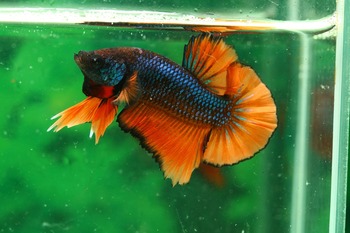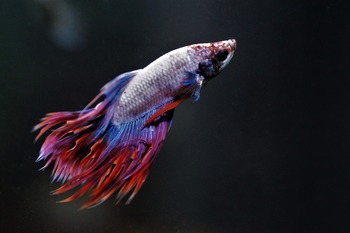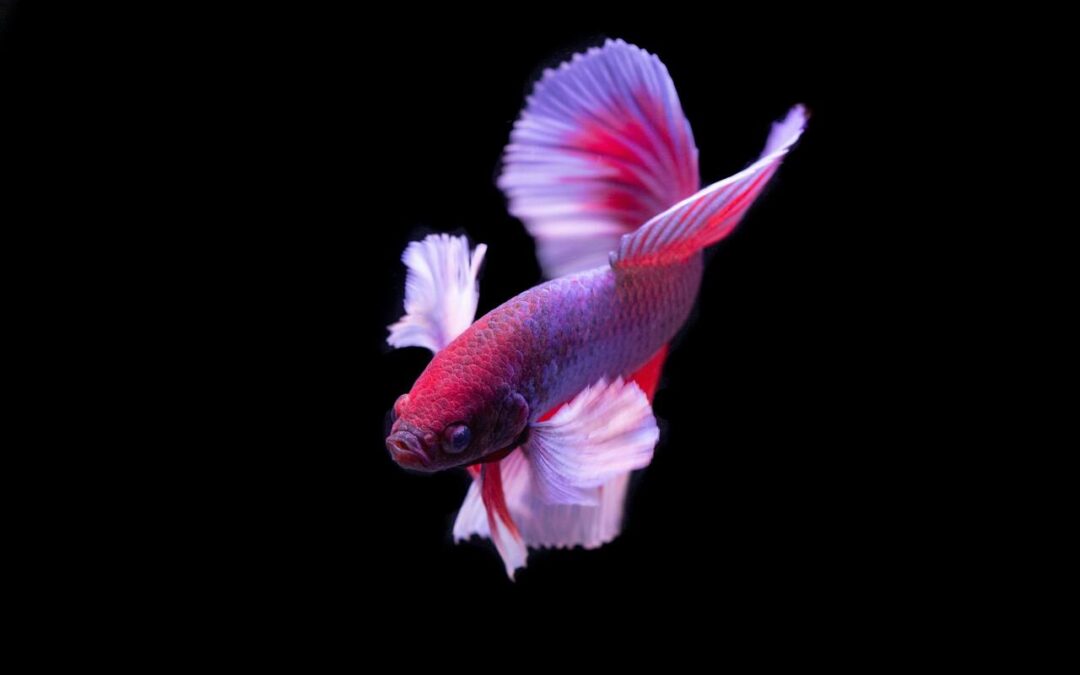Betta fish—better known as Siamese fighting fish—are some of the most popular freshwater pets in the world. Their dazzling colors and flowing fins are almost hypnotic to watch, which explains why so many people are drawn to keeping them. But like any pet, they need more than just a beautiful setup to truly thrive.
One of the very first questions new betta owners usually ask is: Do bettas really need a heater?
The short and simple answer: Yes, they do. Bettas are tropical fish, and their health depends on living in warm, stable water. Without a heater, their environment can fluctuate too much, leading to stress and illness.
In this guide, we’ll take a deep dive into why heaters are so important, what temperature bettas actually need, how to choose the right heater for your tank, and how to avoid common mistakes many first-time owners make.
Why Bettas Need a Heater
1. Their Tropical Origins
In the wild, bettas come from Southeast Asia, where they’re found in rice paddies, shallow streams, and canals. The water in these regions stays warm all year round—typically between 75–82°F (24–28°C). Unlike goldfish or other temperate species, bettas are simply not built for cooler water. Their bodies evolved to function in consistently warm conditions, and that’s the environment we need to recreate in an aquarium.
2. Cold-Blooded by Nature
Like all fish, bettas are ectothermic—meaning they can’t regulate their own body heat. Instead, their body temperature matches the water they live in. When the water gets too cold, everything slows down: their metabolism, digestion, and even their immune system. This makes them sluggish, less interested in food, and more vulnerable to disease.
3. The Health Benefits of Warm, Stable Water
Keeping bettas in the right temperature range provides several long-term benefits:
- Stronger immunity – A stable warm environment helps your betta fight off infections and parasites.
- More activity – Bettas are more lively, curious, and display brighter colors when comfortable.
- Better digestion – Warm water supports their metabolism, reducing common issues like constipation or bloating.
- Longer lifespan – Fish that live in proper conditions are less stressed and often live significantly longer.
Even if your home feels warm to you, indoor temperatures usually fluctuate throughout the day and night. A heater ensures your betta’s world stays steady.

What Happens If the Water Is Too Cold or Too Hot?
Just a few degrees off can make a huge difference in your betta’s health.
- Too cold (<72°F / 22°C): Bettas may stop eating, become lethargic, lose their vibrant colors, and develop weak immunity. Cold stress can also trigger diseases like fin rot.
- Too hot (>86°F / 30°C): On the other hand, overly warm water speeds up their metabolism too much. They burn energy faster, stress out, and the oxygen levels in the tank drop—shortening their lifespan.
This is why a heater alone isn’t enough. Pair it with a reliable thermometer to monitor water temperature daily. That combination keeps your betta safe from extremes.
Choosing the Right Heater for Your Betta Tank
Not all heaters are created equal, and picking the right one depends on your tank size and setup.
Tank Size
A good rule of thumb: 5 watts per gallon of water.
- Example: A 5-gallon tank needs around a 25-watt heater.
Heater Types
- Submersible heaters – Fully placed inside the tank, these are the most reliable and efficient.
- Clip-on heaters – Suitable for some very small tanks, but they can heat unevenly.
Temperature Control
- Adjustable heaters – Best option, since you can fine-tune the exact temperature.
- Pre-set heaters – Acceptable for very small tanks, but they’re less accurate.
Safety Features
Look for heaters with built-in protections such as:
- Automatic shut-off when water overheats.
- Shatterproof casing to prevent cracks or accidents.
How to Set Up a Heater the Right Way
- Choose the correct size heater – Stick to the 5 watts per gallon rule.
- Place it wisely – Put the heater near the filter output or an area with good water circulation, so heat spreads evenly.
- Use a thermometer – Mount it on the opposite side of the tank from the heater to check consistency.
- Adjust gradually – Aim for 75–82°F (24–28°C). Avoid sudden temperature jumps; gradual changes are safer for your betta.
- Cover the tank – A lid helps trap warmth and reduce evaporation.
Can Bettas Survive Without a Heater?
Technically, yes—but only under very specific circumstances.
If you live in a warm tropical climate where room temperature never dips below 75°F (24°C), a betta might survive without a heater. But surviving isn’t the same as thriving. Even in warm homes, temperatures can fluctuate at night or during seasonal changes, which stresses the fish.
For peace of mind—and for your betta’s overall well-being—a heater is the far better choice.
Common Mistakes to Avoid
A lot of new owners make errors when setting up heaters. Here are some of the most common pitfalls:
- Keeping bettas in bowls or tiny tanks – Small containers don’t hold heat well and fluctuate too much. A 5-gallon tank is the bare minimum for stable conditions.
- Trusting room temperature – Most houses are cooler than bettas need, especially at night.
- Using oversized heaters – Too much wattage in a small tank can cause overheating.
- Skipping the thermometer – Even the best heaters can fail. Always double-check with a thermometer.
- Placing tanks near vents or windows – Direct sunlight, drafts, or air conditioning can throw off the tank’s temperature.
Signs Your Betta May Be Too Cold
Not sure if your betta needs a heater upgrade? Watch for these symptoms:
- Spending most of the time at the bottom of the tank
- Refusing to eat
- Colors fading or looking dull
- Clamped fins (held tight to the body)
- Slow swimming or long periods of inactivity
Do Bettas Always Need a Heater?
For the majority of owners, the answer is yes. The only exceptions are tanks in rooms that never dip below 75°F, or aquariums in specialized heated fish rooms. But even then, fluctuations can happen, which is why most aquarists agree a heater is always the safer bet.
Avoiding Temperature Extremes
Just as cold water is dangerous, so is overheating. Here’s how to keep your betta safe from extremes:
- Prevent Overheating – Make sure your heater has an automatic shut-off feature. In warmer months, you may even need to lower the setting or switch it off if the room temperature is high.
- Prevent Freezing – In winter, a heater ensures the tank doesn’t drop dangerously low. Bettas cannot survive in water below 70°F (21°C) for long.
- Ensure Consistency – Covering your tank with a lid helps reduce evaporation and maintain stable water temperatures.
Consistency is key. Bettas handle slight temperature variations, but large swings can cause stress and illness.
Extra Tips for Stable Tank Temperatures
- Match the temperature of new water during water changes to avoid shocking your fish.
- Keep the aquarium away from cold drafts, air conditioners, or heat sources.
- Use a second thermometer for backup monitoring.
- Be prepared for power outages—blankets or battery-powered heaters can buy you time.
- Larger tanks are naturally more stable than small ones.
- Live plants not only make tanks look better but also help stabilize conditions.
Why a Heater Is Essential for Betta Longevity
Think of a heater as central heating for your fish. Just as we humans feel more comfortable in a cozy, consistent climate, bettas thrive in stable warmth. The right temperature reduces stress, supports their immune system, and helps them stay active and colorful.
In fact, bettas kept in well-heated tanks often display brighter colors, interact more with their owners, and live longer, healthier lives.
FAQs About Bettas and Heaters
Can bettas survive without a heater?
Yes, but they won’t thrive. Cold water slows them down, weakens immunity, and shortens lifespan.
What’s the best temperature range?
Between 75–82°F (24–28°C). Below 74°F causes stress, and 70°F or lower is dangerous.
Can I use a heater in a small 3-gallon tank?
Yes—but stick to a small adjustable heater (10–15 watts) and monitor carefully.
Do bettas still need a heater if my room is warm?
Even warm rooms can experience nighttime drops. A heater ensures consistency, which is key to betta health.
How do I know if my heater is working properly?
Check your thermometer daily. If the water stays within the safe range (75–82°F), your heater is doing its job.
Can heaters harm bettas?
Only if it malfunctions or overheats the water. Using a reliable heater with safety features and monitoring with a thermometer prevents this.
Should I turn my heater off at night?
No. Bettas need constant warmth. Keep the heater running 24/7 for stability. Turning it off at night can cause dangerous fluctuations.

Final Thoughts
So, do bettas need a heater? Absolutely. Bettas are tropical fish, and warm, stable water is not optional—it’s essential. The ideal range of 75–82°F (24–28°C) keeps them active, colorful, and healthy.
A heater isn’t just another aquarium accessory; it’s a critical part of your betta’s care. By investing in the right heater and setting it up properly, you’re giving your fish the best possible chance to thrive. In return, your betta will reward you with vibrant colors, lively swimming, and years of companionship.






